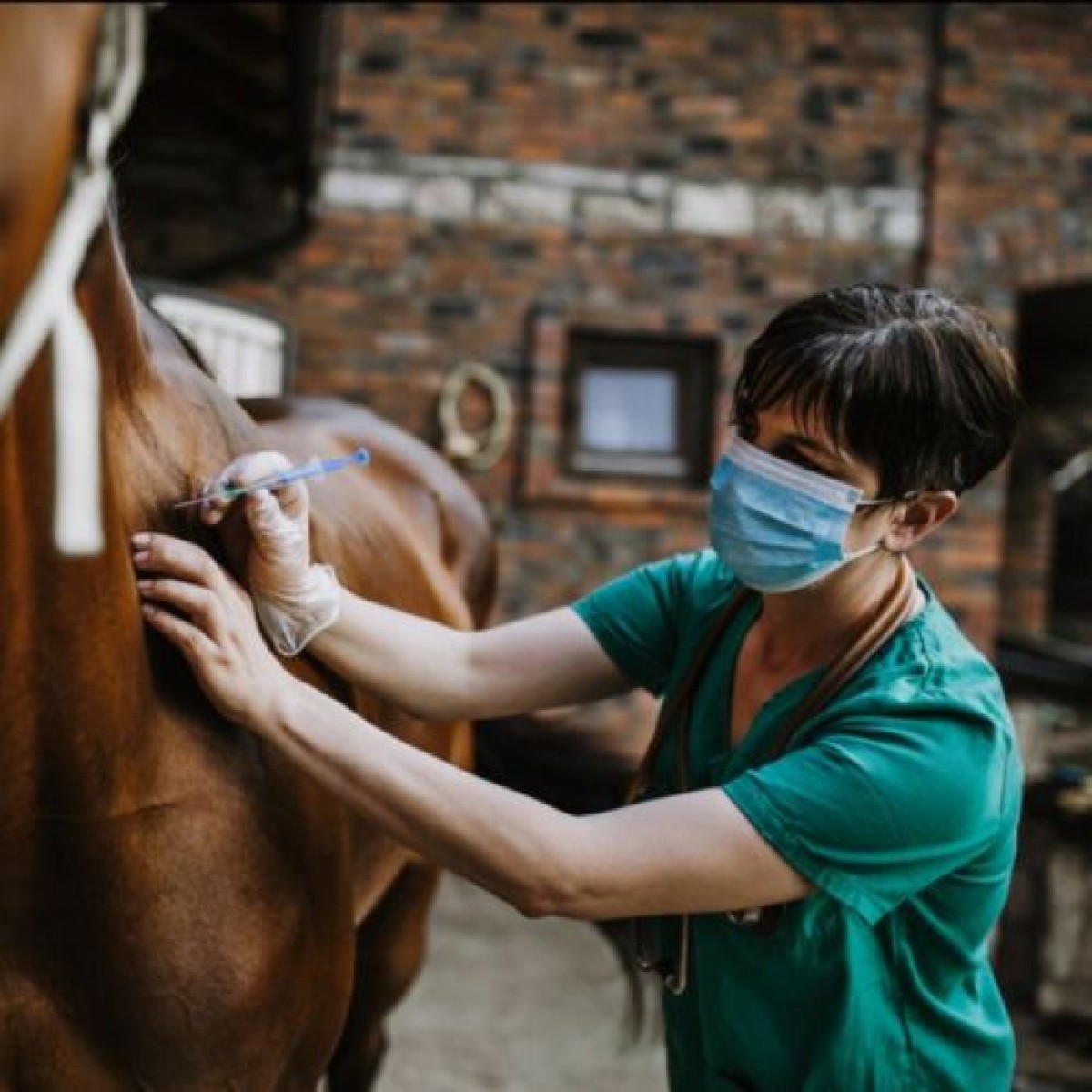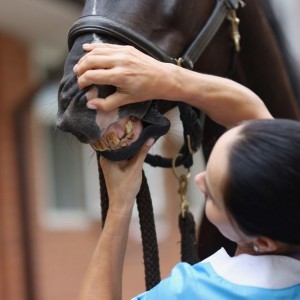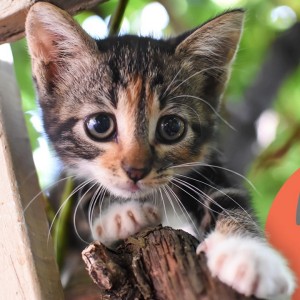Temple Grandin collaborates with UNE's Paul McGreevy on study seeking genetic clues to horse temperament
By University of New England (Australia) News
Horses are bred for specific work or sports, but individual horses may have temperaments that make them ill-suited to the role they were bred for.
The resulting mismatch can be bad for horses and people, says University of New England Professor of Animal Behaviour, Paul McGreevy.
In search of answers, McGreevy is leading a world-first study that will support future efforts to better match horses with their roles by identifying the genetic roots of certain horse behaviors.
Legendary animal behavior expert Professor Temple Grandin of Colorado State University is collaborating with McGreevy on the investigation.
By identifying the genes that make horses prone to behaving a certain way under specific conditions, the researchers hope to establish a scientific foundation for breeding horses more reliably equipped with a temperament that suits the work they are asked to do.
Genetics is all about data – the more, the better. McGreevy has turned to one of the world’s largest, most diverse group of horse enthusiasts to act as citizen scientists in the study: American Quarter Horse owners.
The Quarter Horse is an extraordinarily versatile breed. The American Quarter Horse Association (AQHA) has 280,000 paying members who are split across six disciplines: cutting, halter, racing, reining, Western Pleasure and working cow.
The study will enlist volunteer Quarter Horse owners across these disciplines to respond to a carefully curated set of questions about the behaviour of horses in their care.
The data and the genetic information encoded in the tail hair that respondents will also be asked to submit, will be used in an attempt to identify relevant, highly heritable differences in Quarter Horse behavior. That data may in future be used to predict behavioral traits at the genetic level.
Those who contribute data will be rewarded with an individual assessment of how the behavioral traits of their horses compare with all other Quarter Horses on the database.
Grandin said that building the ability to predict behaviour could radically enhance breeding programs and have profound advantages for horses and people alike.
“This project will give Quarter Horse breeders, and horse breeders everywhere, a proven path to improving horse performance while advancing horse welfare and reducing behavioral issues,” she said.
Using genetic selection technologies to better fit animals to a role is nothing new to the domestic livestock industries, which over the past few decades have used the technologies to greatly enhanced productivity traits.
UNE is a global leader in the development of genetic selection technologies for sheep and cattle and is at the forefront of work to develop genomic breeding tools to support improved productivity and welfare outcomes in these species.
But technology-enhanced genetic selection is still a novelty in horse breeding, where subjective assessment of quality continues to have pride of place.
McGreevy hopes that the Quarter Horse citizen science project will be a turning point in addressing the problem known as “behavioral wastage”. The problem, he says, is that people often don’t know that a horse is ill-suited to a chosen role until it is well into training.
Trying to “jam square pegs into round holes” can lead to chronically stressed horses, and injured people. McGreevy noted that horse accidents kill on average 20 Australians each year.
“With this project, we are using a recent innovation in collecting and analyzing equine behavior to understand and celebrate the genetic differences that optimize the matching of horses for courses,” he says.
The innovation is the Equine Behavior Assessment and Research Questionnaire (E-BARQ), which enables researchers to collect detailed owner-reported data on observed horse behaviors while eliminating subjective judgements about what those behaviors represent.
Developed with input from an international panel of professionals drawn from a range of equine specialties, E-BARQ is an evolution of an equivalent canine behavioral instrument, C-BARQ, the development of which was led by the University of Pennsylvania.
The E-BARQ database already carries information on more than 5000 horses. The data have yielded important insights. It has objectively shown that the behavior of horses changes as they age; that certain behaviors in-hand predict dangerous behaviors in-saddle; even that a horse may behave differently depending on whether it is being handled by a man or a woman.
The Quarter Horse project will draw on E-BARQ responses to suggest significant behavioral traits that are heritable. Future work will need to identify the sites in the horse genome that encode these behaviors, Prof. McGreevy says. That work accomplished, breeds like the Quarter Horse will then have a foundation for a genetic selection system like those that have become so powerful in the evolution of domestic livestock.
McGreevy developed the project after being awarded a Fulbright Commission grant that took him to Colorado State in 2022, where he met with Grandin. The Fulbright grant is also supporting this citizen science project.
Read the original story on UNE's website.














List
Add
Please enter a comment